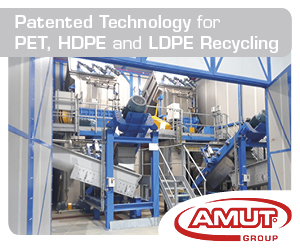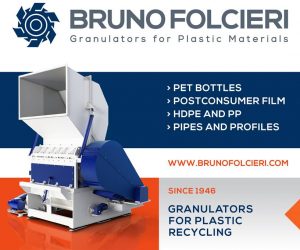
Virgin plastics producer SABIC will supply recycled resin derived from post-consumer mixed plastics for beauty products packaging. | Casimiro PT/Shutterstock
Three virgin plastics companies recently announced developments in the area of chemical recycling. The following are summaries of the news from Chevron Phillips Chemical, SABIC and BASF.
Commercial-scale milestone: Chevron Phillips Chemical announced that it successfully completed its first U.S. commercial-scale production of PE derived from chemically recycled mixed plastics.
“We are exceptionally proud to be the first company to announce production of a circular polyethylene on this scale in the U.S.,” Jim Becker, vice president of polymers and sustainability for the company, stated in a press release. “The successful production run marks a huge step for CPChem on our path to being a world leader in producing circular polymers.”
The company is now looking to scale up the use of the pyrolysis technology, as well as achieve certification for the new PE through the International Sustainability and Carbon Certification Plus (ISCC Plus) mass-balance methodology. Upon certification, Chevron Phillips Chemical intends to market the plastic under the trade name Marlex Anew Circular Polyethylene.
Recycled-content tube: Three companies are collaborating to bring chemically recycled plastic into beauty product packaging. Virgin plastics producer SABIC will supply recycled resin derived from post-consumer mixed plastics, part of the company’s TRUCIRCLE portfolio of chemically recycled polyolefins. Albéa will convert the plastic into tubes for Estée Lauder Companies (ELC) products; specifically, the tubes will hold Origins skincare brand products. According to a press release, the package is expected to hit store shelves in 2021.
In August, SABIC announced that its TRUCIRCLE recycled PP, produced via a pyrolysis process, was being used in Magnum brand ice cream tubs. Over 7 million of the recycled-content tubs are slated to be rolled out across Europe this year.
From tires to recycled plastics: BASF’s ChemCycling project has focused on using a pyrolysis technology to process difficult-to-recycle mixed plastics into chemicals for use in new plastics. Now, BASF is supporting the use of pyrolysis on scrap tires.
The global chemical company plans to invest 16 million euros (nearly $19 million) in Pyrum Innovations, a German company using pyrolysis on scrap tires. BASF plans to use the resulting pyrolysis oil to produce recycled-content plastic products for customers, alongside its existing recycled-content offerings derived from scrap plastics.
“With the investment, we have taken another significant step towards establishing a broad supply base for pyrolysis oil and towards offering our customers products based on chemically recycled plastic waste on a commercial scale,” Hartwig Michels, president of BASF’s Petrochemicals division, stated in a press release.
More stories about technology
- Industry nuance is key in adopting emerging technology
- Google, Dow partner on AI to identify recyclables
- Food-grade PP recovery primed for growth



